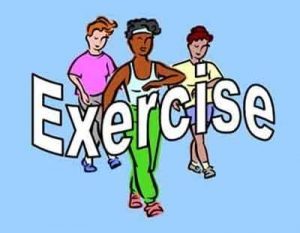- Home
- Editorial
- News
- Practice Guidelines
- Anesthesiology Guidelines
- Cancer Guidelines
- Cardiac Sciences Guidelines
- Critical Care Guidelines
- Dentistry Guidelines
- Dermatology Guidelines
- Diabetes and Endo Guidelines
- Diagnostics Guidelines
- ENT Guidelines
- Featured Practice Guidelines
- Gastroenterology Guidelines
- Geriatrics Guidelines
- Medicine Guidelines
- Nephrology Guidelines
- Neurosciences Guidelines
- Obs and Gynae Guidelines
- Ophthalmology Guidelines
- Orthopaedics Guidelines
- Paediatrics Guidelines
- Psychiatry Guidelines
- Pulmonology Guidelines
- Radiology Guidelines
- Surgery Guidelines
- Urology Guidelines
Exercise may benefit heart failure patients by reducing coronary artery stiffnes, finds study

COLUMBIA, Mo. - Exercise is considered good for health and has been found beneficial in cardiac diseases, diabetes, psychiatric disorders including depression and even cancer.
But somehow bed rest is prescribed to people with heart failure, fearing exercise could potentially lead to additional health problems.
A research from the University of Missouri has found exercise can improve the health of blood vessels in the heart for people with heart failure. The researcher have found that exercise can reduce coronary artery stiffness associated with heart failure.The finding is based on a study looking at swine, which have very similar blood vessels and heart muscles - both structurally and functionally - as humans.
The study has been published in the Journal of Applied Physiology.
Heart failure (HF) is associated with increased large conduit artery stiffness and afterload resulting in stiffening of the coronary arteries. Exercise may relieve Coronary artery stiffness and help in Heart failure.
Craig Emter, associate professor in the College of Veterinary Medicine, studied three different groups of swine with heart failure: one group was inactive; a second group exercised using intervals with a higher level of intensity for short periods of time intermixed with periods of lower intensity; and the third group exercised with a constant lower level of intensity. Emter found that regardless of exercise intensity or duration, any level of exercise resulted in improved health of blood vessels in the heart.
"People with heart failure cannot do everything that a healthy individual can, so the question becomes how much exercise can they handle and what type of impact will it have on their health," Emter said. "We found that regardless of intensity level, some type of physical activity was good for heart health compared to no exercise at all."
Emter explained stiff blood vessels can block or impair blood flow to the heart and can lead to a variety of cardiovascular issues. The research findings can be useful for human medicine as well.
"We now have a better understanding of how blood flows in the heart, the stiffness of blood vessels and the impact that exercise has on heart health," Emter said. "Understanding the underlying science of the heart allows us to help improve the health of people with heart failure."
For further reference log on to:
- An Ouyang, T. Dylan Olver, Craig A. Emter, Bradley S. Fleenor. Chronic exercise training prevents coronary artery stiffening in aortic-banded miniswine: role of perivascular adipose-derived advanced glycation end products. Journal of Applied Physiology, 2019; 127 (3): 816 DOI: 10.1152/japplphysiol.
00146.2019
Next Story
NO DATA FOUND

Disclaimer: This site is primarily intended for healthcare professionals. Any content/information on this website does not replace the advice of medical and/or health professionals and should not be construed as medical/diagnostic advice/endorsement or prescription. Use of this site is subject to our terms of use, privacy policy, advertisement policy. © 2020 Minerva Medical Treatment Pvt Ltd